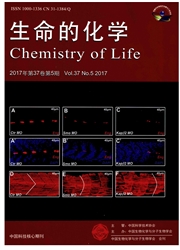

 中文摘要:
中文摘要:
泛素特异性蛋白酶22(ubiquitin specific protease 22,USP22)是一种组蛋白去泛素化酶,在核受体介导的基因转录调控中起增强转录活性的作用。USP22在肿瘤发生、发展中发挥着重要作用,影响癌基因c-Myc介导的基因转录,从而促进肿瘤的增殖和生长;另一方面,USP22可改变远上游识别序列结合蛋白1(far upstream element—binding protein1,FBP1)的泛素化水平,从而影响FBP1下游的抑癌基因p21的表达。USP22与胃癌、大肠癌、乳腺癌及膀胱癌等肿瘤的病理进程相关。此外,USP22在端粒稳态的维持中起作用。本文主要综述USP22参与核受体介导的基因转录调控的表观遗传学机制及其在肿瘤发生中的作用。
 英文摘要:
英文摘要:
Ubiquitin specific protease 22 (USP22), a histone deubiquitinase, mediates the histone H2A and H2B deubiquitinatin and coactivates ligand-dependent nuclear receptor-mediated transactivation. USP22 plays an important role in tumorogenesis and development. USP22 modulates c-Myc-induced transcription to facilitate tumor proliferation and growth. On the other hand, USP22 alterates the ubiquitination level of far upstream element-binding protein 1 (FBP 1), leading to inhibition of the expression of p21. USP22 is also closely related to the pathological process of gastric carcinoma, colorectal cancer and invasive breast cancer. Moreover, USP22 plays a role in telomere maintenance. This paper will review the epigenetic mechanisms of USP22 involved in nuclear receptor-mediated transcriptional regulation and the role of USP22 in tumorogenesis.
 同期刊论文项目
同期刊论文项目
 同项目期刊论文
同项目期刊论文
 Identification of endocrine disrupting chemicals activating SXR-mediated transactivation of CYP3A an
Identification of endocrine disrupting chemicals activating SXR-mediated transactivation of CYP3A an MDC1 Enhances Estrogen Receptor-mediated Transactivation and Contributes to Breast Cancer Suppressio
MDC1 Enhances Estrogen Receptor-mediated Transactivation and Contributes to Breast Cancer Suppressio Nicotinamide adenine dinucleotide (NAD) may affect DNA methyltransferase 1 through regulationof BRCA
Nicotinamide adenine dinucleotide (NAD) may affect DNA methyltransferase 1 through regulationof BRCA MDC1 functionally identified as an androgen receptor co-activator participates in suppression of pro
MDC1 functionally identified as an androgen receptor co-activator participates in suppression of pro Genome-wide 5-hydroxymethylcytosine modification pattern is a novel epigenetic feature of globozoosp
Genome-wide 5-hydroxymethylcytosine modification pattern is a novel epigenetic feature of globozoosp Zinc Modulates High Glucose-Induced Apoptosis by SuppressingOxidative Stress in Renal Tubular Epithe
Zinc Modulates High Glucose-Induced Apoptosis by SuppressingOxidative Stress in Renal Tubular Epithe 期刊信息
期刊信息
